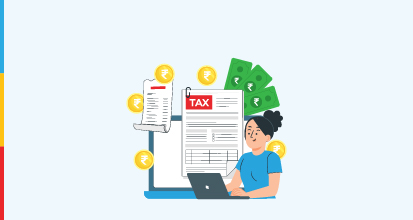- Proportional Tax: A tax system where the tax rate is fixed and does not change as the taxable base amount increases or decreases.
- Progressive Tax: A tax system where the tax rate increases as the taxable base amount increases.
- Tax Liabilities: The amount of money or debt that a person or organisation owes the government in taxes.
- Advance tax: is the tax you pay in instalments during the financial year if your total tax liability exceeds ₹10,000
- PPF: It is a long-term savings scheme offering tax-free returns, safety, and deductions up to ₹1.5 lakh under Section 80C
Written by : Knowledge Centre Team
2026-01-09
1905 Views
6 minutes read
Share










